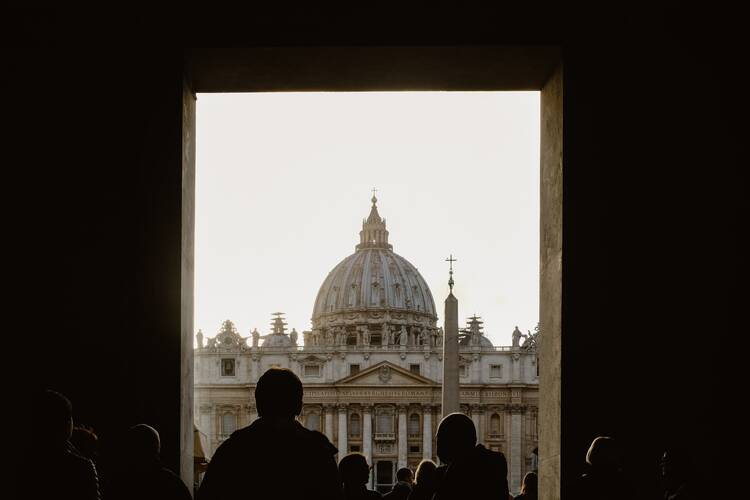There are a few questions that tempt me to an irritated, if not to say aggressive, response. “Was it different when you were young?” “Why don’t you color your hair?” But the one that requires the most self-control is one that people whom I know only slightly (or not at all) feel remarkably free to ask: “Why are you still a Catholic?”
The answer that usually shuts people up is that “the terms are large.”
My frustration stems from the awareness that for most people, Catholic means only one of three things: a regrettable tendency to lean right, an appetite for sexual repression, an inborn or early-developed talent for blind obedience. Or perhaps a belief on the part of the questioner that Joseph Ratzinger and I are on the same page, whereas in reality there are almost no pages that we are both on (except probably the page headed “Mozart”). Or maybe their failure to recognize the difference between the two popes canonized at the same time: John XXIII and John Paul II, one of whom was devoted to opening windows and the other to sealing them shut.
For most people, Catholic means only one of three things: a regrettable tendency to lean right, an appetite for sexual repression, an inborn or early-developed talent for blind obedience.
That brings me to my current project, a book called What Kind of Catholic Are You? I have come up with a series of couples, with each member of the couple saying that her or his ideas stem from his or her Catholicism—except that the ideas are diametrically opposed. So I link Bill O’Reilly and Stephen Colbert, Nancy Pelosi and Kellyanne Conway, Sonia Sotomayor and Brett Kavanaugh, Paul Farmer and Robert R. Redfield, Anna Quindlen and Ross Douthat, Rachel Maddow and Laura Ingraham. Don’t worry: The list isn’t finished.
I have written nonfiction before, and I use the same muscles as I do when I write fiction, only differently. The pleasures are distinct, as are the troubles. When you are inventing a world, you can sometimes feel like Bugs Bunny or Wile E. Coyote when he suddenly realizes that he has gone past the edge of the cliff: There is nothing but air beneath his feet. When you must respect facts, you can feel overwhelmed by what must be selected from a daunting body of material.
I am very strict about the distinction between fiction and nonfiction. In fiction you make stuff up, and in nonfiction you don’t. In monitoring the differences, I like to give myself a title owned by a particularly frightening nun in my high school: Prefect of Discipline. In the case of memoir, I believe that the writer has a responsibility to question scrupulously whether her memories are accurate; if she is unsure, that needs to be marked, even meditated upon.
I am very strict about the distinction between fiction and nonfiction. In fiction you make stuff up, and in nonfiction you don’t.
When I wrote about Joan of Arc, I had to respect what historians had said with much more authority than I. I had to make judgments from an avowedly amateur position. And I had a real problem with battle scenes: I simply couldn’t visualize them. My beloved late husband tried patiently to make models of them on our dining room table, using oranges for the English, lemons for the French. I still couldn’t see it. He had to write simple narratives of the battles for me, and only then could I begin to digest them enough to render them in my own voice.
What Kind of Catholic Are You? brings a new set of problems, and oranges and lemons will probably not be of much help. I am writing about living human beings, many of whom have left enormous paper trails. I have many more affinities with some of these people than others, just as I have more affinities with some of the fictional characters I have created than with others. But I am not creating characters; these are real people with real lives not under my control. But I hope that some of my novelist’s habits of mind and language can be of use as I try to enter into an understanding of lives in some ways similar to, and in others very different from, my own.
Perhaps because of my experience as a novelist, I am really not interested in an extended game of gotcha. I believe that because the people about whom I am writing share with me a vocabulary, a set of images and shared practices (after all, when we hear the “Hail Mary,” we all know the words), there are some firm grounds on which we can all stand. And if there’s no firm ground, I have to mark that too. Just like Bugs Bunny or Wile E. Coyote.
More from America:










